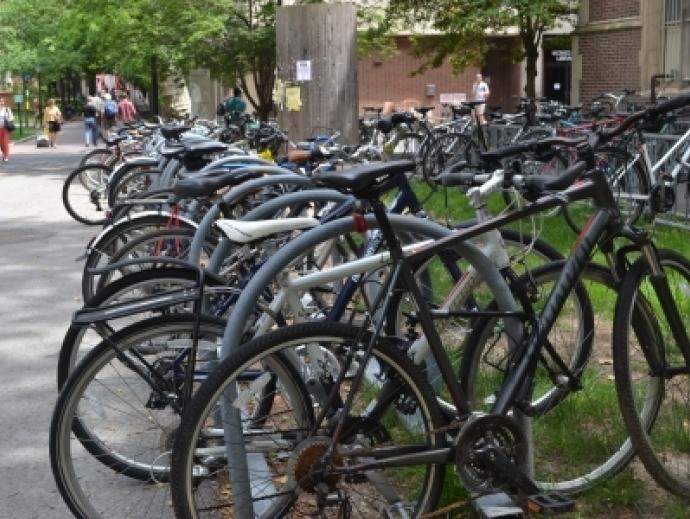Penn Employee Commuters are Choosing Sustainable Transportation, More So Than Most in Region

Penn employees rank high in sustainable commuting, but more could still be done, survey finds.
Penn Employee Commuters are Choosing Sustainable Transportation, More So Than Most in Region
Penn employees rank high in sustainable commuting, but more could still be done, survey finds.

University of Pennsylvania employee commuters make strong use of sustainable transit options, say results released from a survey conducted last spring. Responses from more than 4,000 staff and faculty reveal that Penn employees use transit at a rate seven times the average commuter in Philadelphia; they bike more than three times as much, and they walk almost ten times more than the regional rate.
More than half (52.1%) of valid survey respondents said they take public transit at least once a week, and just over 30% (32.1%) reported that they take transit three or more days in a week. Transit, driving alone, and walking were the most popular ways to get to work, in that order. The percentage of frequent transit users (32.1%) substantially outnumbers the transit mode share in the City of Philadelphia (24.0%) and metro region (6.4%) (both according to Census data*).
“The high level of sustainable transit use is associated with the fact that many Penn employees live in locations with good access to work via transit, walking, or biking. Users who have access to transit tend to use it,” says Nina Morris, Penn Sustainability Director.
More than half of Penn commuters make use of university commuter benefit programs, including a pre-paid pre-tax commuter card, and a Bicycle Commuter Reimbursement Program. Full-time benefits eligible employees and post-doctoral researchers and fellows receive a substantial discount on most Philadelphia-based regional transportation products: SEPTA, PATCO, NJ Transit, and Amtrak.
The Penn Bike Commuter Expense Reimbursement Program offers bicycle commuting expenses to qualified faculty, staff, and Postdoctoral Researchers and Fellows for out-of-pocket eligible expenses up to $240 annually, such as bike purchases, maintenance, accessories, storage, and safety gear.
“Penn continues to explore options to support those who choose to bike to campus," said Michael Bernhardt, head of the University's Bike Committee. "We have added bike repair stations, expanded the number of Indego bike rental stations on campus, and host National Bike to Work Day each year.
The Penn Sustainability Office, housed in the Division of Facilities and Real Estate Services (FRES) and Business Services Division (BSD) commissioned the Weitzman School of Design’s PennPraxis and the Center for Safe Mobility to design and execute a commuter behavior survey. The survey, deployed in Spring 2023, collected information about employee travel patterns and attitudes. The Research Team considered participation in the survey to be strong, with more than 4,000 valid responses from Penn employees across Penn’s 28 schools and divisions. The survey report (PDF) is available on the Penn Sustainability website.
*Mode share of Penn employees vs. Philadelphia region (excluding people working from home). Other mobility includes carpool, rideshare, scooter, etc. Census data source: US Census Bureau, 2017-2021 American Community Survey 5-Year Estimates